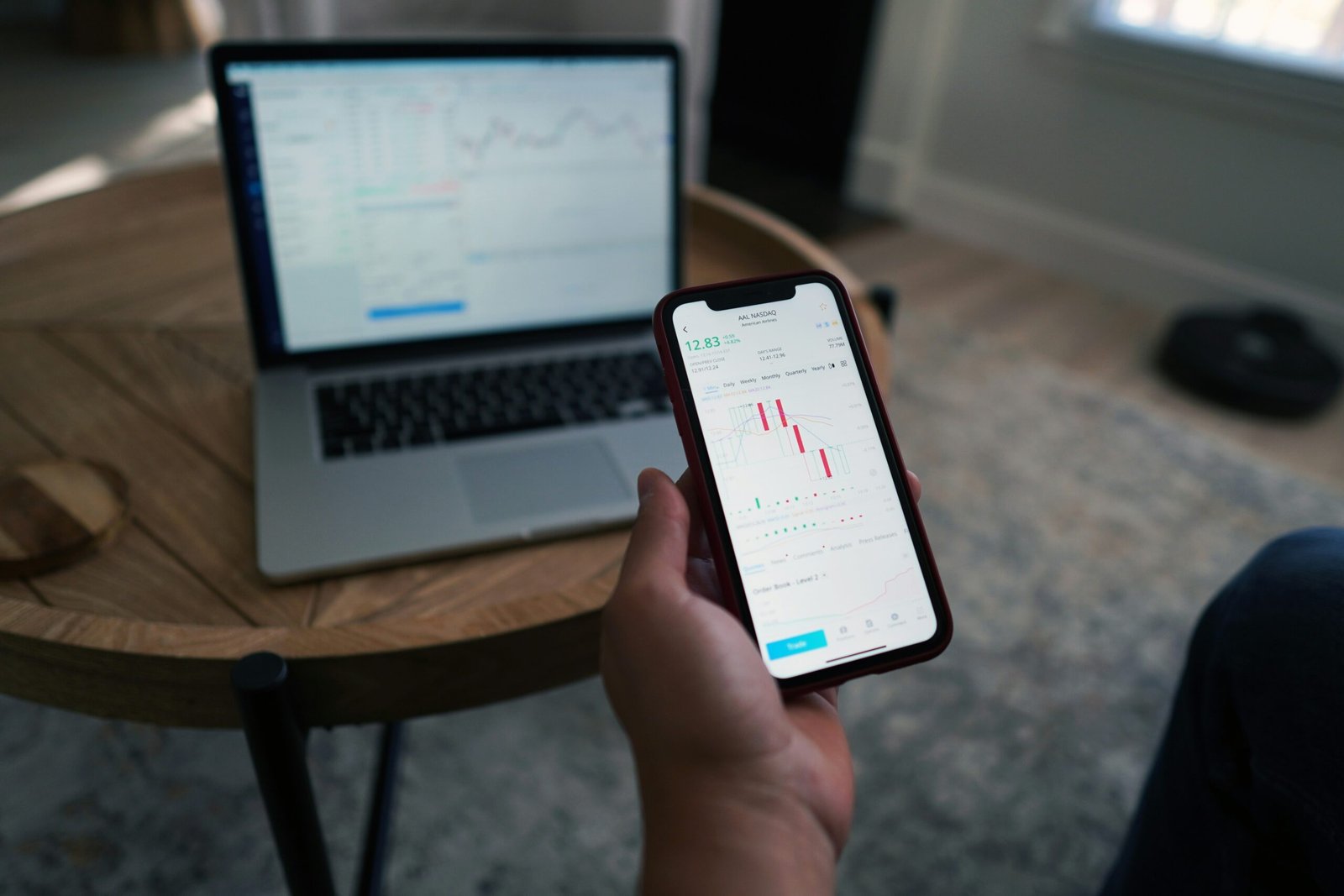Understanding Retail Investors
Retail investors are individuals who purchase and sell securities for their personal accounts, rather than on behalf of an institution or organization. Unlike institutional investors, such as mutual funds, pension funds, and hedge funds, retail investors typically manage smaller amounts of capital. Their investment decisions are often dictated by personal financial goals, risk tolerance, and market trends, making them distinct players in the global financial landscape.
These investors have unique characteristics that define their behaviors and motivations. Many retail investors are motivated by the desire to grow their wealth, save for retirement, or achieve specific financial goals. They often engage with various asset classes, including shares, bonds, and real estate, through platforms that allow for direct trading. Recent trends indicate a significant increase in the number of retail investors actively participating in equity markets. According to recent studies, there are now approximately 100 million retail investors in the United States alone, a number that has surged as more individuals recognize the importance of personal investment.
Retail investors tend to exhibit different trading styles compared to their institutional counterparts. Many rely on self-directed trading platforms and financial news for insights, sometimes leading to a more speculative approach. Additionally, retail investors are increasingly turning to technological advancements such as robo-advisors and mobile trading applications, which facilitate easier access to the markets and streamline the investing process. As a result, they are contributing to a rising trend of retail participation in stock exchanges worldwide.
The growing presence of retail investors in equity markets is significant. Their collective actions can influence market prices and sentiment, demonstrating the importance of this demographic in the broader financial system. Increased participation can also drive innovation in financial products and services, making financial markets more accessible to everyday individuals.
Impact of Retail Investors on Market Dynamics
The rise of retail investors has significantly reshaped market dynamics in recent years. These individual investors, as opposed to institutional investors, have begun to play a pivotal role in influencing market trends and volatility. Their presence has been greatly amplified by the proliferation of online trading platforms and social media, which democratize access to financial markets and information, making it easier for non-professionals to participate in trading.
Retail investors often demonstrate distinct psychological and behavioral traits that can impact trading patterns and stock prices. Their decisions are frequently driven by sentiment and emotional responses rather than fundamental analysis. This behavior can lead to rapid price fluctuations, creating bursts of volatility in the market. The phenomenon of “herding,” where investors follow the crowd rather than making independent decisions, is particularly potent among retail traders. A single viral post or trending stock can ignite widespread buying or selling, thereby impacting market conditions significantly.
The accessibility of information through social media platforms has also magnified the influence of retail investors. Online forums and community discussions can lead to the rapid dissemination of investment ideas, influencing the buying and selling behavior of numerous participants simultaneously. For instance, stocks that gain traction in these online communities often experience significant price movements, highlighting the power of collective action among retail investors. Additionally, their influence is not limited to short-term trading; over time, their preferences and investment patterns can contribute to shaping long-term market trends.
In essence, retail investors have transitioned from being passive participants to active players in global financial markets. Their engagement, powered by technological innovations, has brought about a new era in trading dynamics, encouraging a more participatory market environment. This evolution emphasizes the critical role that retail investors continue to play in influencing market behavior.
Success Stories and Challenges Faced by Retail Investors
Retail investors have gained recognition for their increasing impact on global markets, demonstrating both remarkable success stories and notable challenges. One of the most celebrated cases is that of a retail investor who turned a modest initial investment into a multi-million dollar portfolio through strategic stock picking and disciplined risk management. This investor focused on technology firms and emerging industries, capitalizing on trends that the institutional investors often overlooked. His regular analysis of company fundamentals and market dynamics exemplifies an effective strategy that combines research with an understanding of market sentiment.
Another inspiring story involves a group of retail investors who banded together to pool their resources in an effort to amplify their returns. Utilizing online platforms and social media, they shared insights and real-time information, allowing them to collectively make informed decisions. This model not only democratized investment opportunities but also showcased the power of collaborative retail investing, resulting in significant gains during market rallies.
However, these success stories are tempered by the challenges retail investors frequently encounter. One significant hurdle is market manipulation, which can distort prices and lead to losses for those lacking resources to counteract such tactics. Moreover, the accessibility of timely and relevant information often places retail investors at a disadvantage compared to institutional players who can leverage advanced analytics and proprietary research. Emotional trading decisions present an additional challenge; the tendency to react impulsively to market fluctuations can hinder long-term success. Without a disciplined approach and emotional resilience, investors risk deviating from their strategic plans.
Despite these challenges, the journey of retail investors reflects a nuanced landscape where success is attainable, yet fraught with difficulties. By understanding both the opportunities for growth and the potential pitfalls, retail investors can navigate the complexities of the financial markets more effectively.
Future Outlook: The Evolving Landscape for Retail Investors
The future of retail investing is anticipated to be shaped by several key trends that reflect both technological advancements and changing regulatory frameworks. One prominent development is the rise of robo-advisors, which cater to the increasing demand for personalized investment solutions at a lower cost. These automated platforms utilize algorithms to devise investment strategies tailored to individual risk profiles and financial goals. As these services become more mainstream, retail investors will gain easier access to diversified portfolios that were once primarily available to institutional investors.
Alongside technological innovations, increasing regulatory scrutiny presents another critical factor influencing the retail investment landscape. In response to the rapid shifts witnessed during recent market volatility, regulators worldwide are reassessing existing frameworks. Enhanced disclosure requirements and transparency measures aim to protect retail investors from potential market abuses while ensuring they are well-informed. This could lead to tighter regulations on trading practices, particularly regarding the trading of derivatives and cryptocurrencies, areas where retail investors are increasingly active.
The impact of technology on trading habits cannot be overstated, as retail investors increasingly leverage digital tools for investing. Mobile trading applications and social media platforms now play a pivotal role in investment decisions, allowing users to share insights and strategies in real-time. These trends underscore the growing power of retail investors, who are not only participating in markets but are also shaping market dynamics through collective behavior and sentiment. Expert opinions suggest that as retail investments grow in prominence, traditional market strategies may evolve to accommodate this new demographic. Retail investors are likely to drive demand for more flexible financial products and sustainable investment options, reinforcing their crucial role in global markets.









